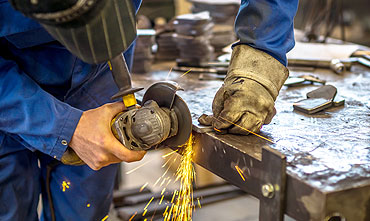
Aluminum is a versatile material that has become an essential component in many industries. Its unique properties make it the preferred choice for various applications, from household items to heavy-duty machinery.
The demand for aluminum products has increased significantly in recent years, leading to the rise of specialized professionals called aluminum fabricators. These skilled individuals play a crucial role in the manufacturing and production of aluminum.
Material expertise and selection:
One of the primary responsibilities of aluminium fabricators is to possess in-depth knowledge of aluminum alloys and their properties. Different alloys exhibit varying strengths, corrosion resistance, and weldability, making material selection a critical aspect of the fabrication process. Fabricators must understand the specific requirements of each project and recommend the most suitable aluminum alloy to ensure optimal performance and durability.
Custom fabrication and design:
Aluminum fabricators work closely with clients to translate design concepts into tangible products or structures. Whether creating architectural features, industrial components, or consumer goods, fabricators employ advanced CAD software and precision machining techniques to fabricate aluminum according to precise specifications. From CNC machining and laser cutting to bending and welding, fabricators utilize a range of tools and processes to bring designs to life with precision and accuracy.
Innovation and continuous improvement:
Aluminum fabricators are at the forefront of innovation, constantly exploring new materials, technologies, and techniques to enhance efficiency and performance. They invest in research and development to develop advanced fabrication methods, improve production processes, and reduce waste. By staying abreast of industry trends and emerging technologies, fabricators remain competitive and can offer clients innovative solutions that meet evolving needs and expectations.
Collaboration and project management:
Effective communication and collaboration are essential aspects of the aluminum fabrication process. Fabricators work closely with clients, architects, engineers, and other stakeholders to understand project requirements, address challenges, and ensure alignment throughout the fabrication process. From initial concept development to final installation, fabricators manage projects with meticulous attention to detail, coordinating resources, timelines, and deliverables to achieve successful outcomes.
Aluminum fabricators play a vital role in the manufacturing ecosystem, combining material expertise, technical proficiency, and innovation to deliver high-quality aluminum products and solutions. From custom fabrication to quality assurance and project management, fabricators contribute to the creation of diverse and innovative products that shape industries and enrich lives. As demand for lightweight, durable, and sustainable materials continues to grow, the role of aluminum fabricators remains indispensable in meeting the evolving needs of modern manufacturing.





